Summary and photos from the ‘Sanctioning Russia’ seminar
Summary
On June 18, 2025, the Stockholm Institute of Transition Economics (SITE) hosted a high-level public seminar exploring the evolving landscape of international sanctions on Russia. As geopolitical tensions continue and Russia’s war against Ukraine persists, the seminar provided a critical platform for examining how sanctions function, where they fall short, and what can be done to improve their effectiveness.
This seminar also marked the launch of SITE’s new open-access resource: SanctionsRussia.org—a comprehensive web portal offering curated data, analysis, and tools for researchers, policymakers, and journalists seeking to understand the impact of sanctions on Russia.
Opening Remarks
Maria Perrotta Berlin (SITE) introduced the seminar by emphasizing the complexity of measuring sanctions’ effectiveness. She highlighted the need for transparency, methodological rigor, and a nuanced understanding to avoid reductive narratives of “success” or “failure.”
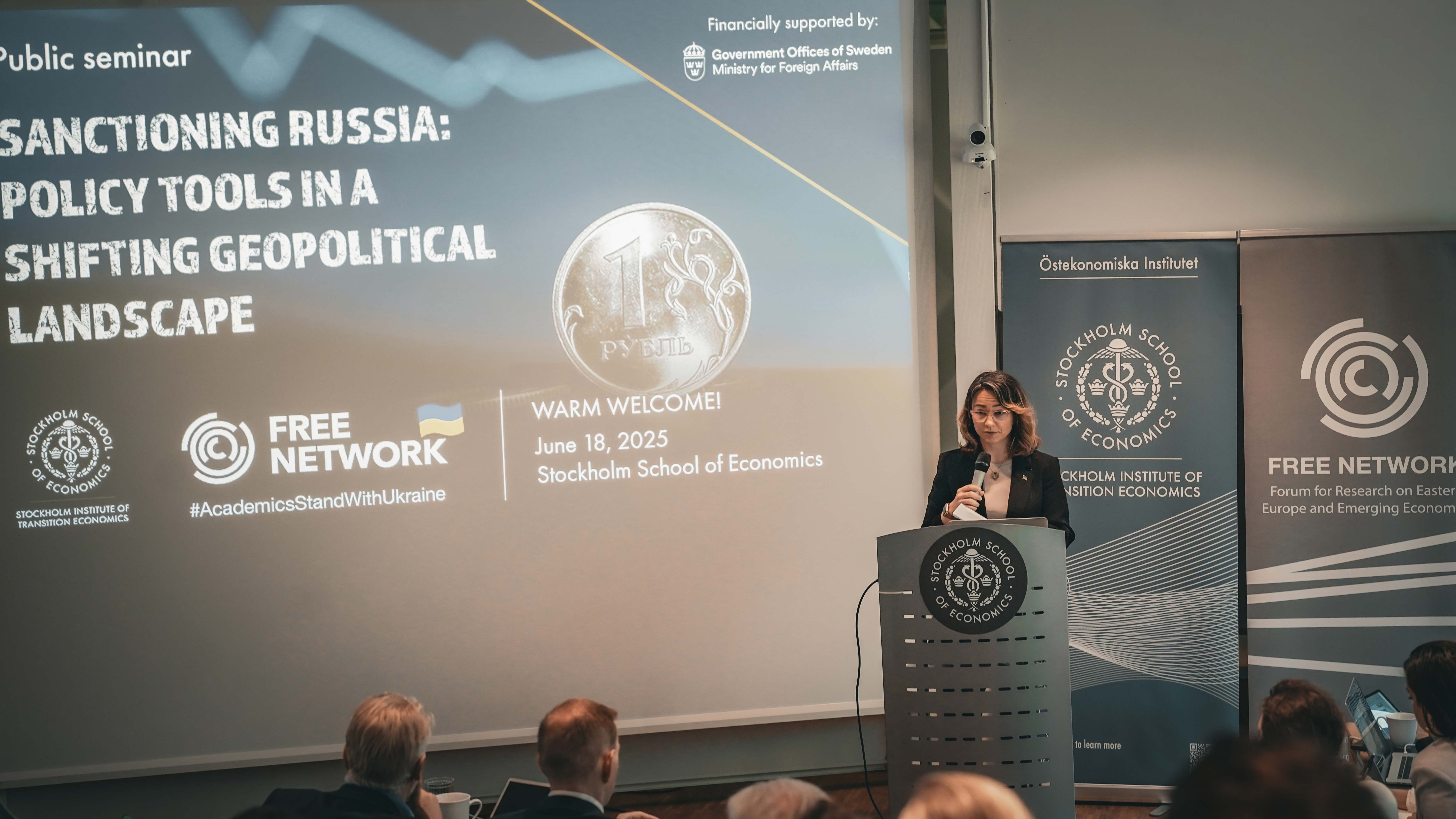
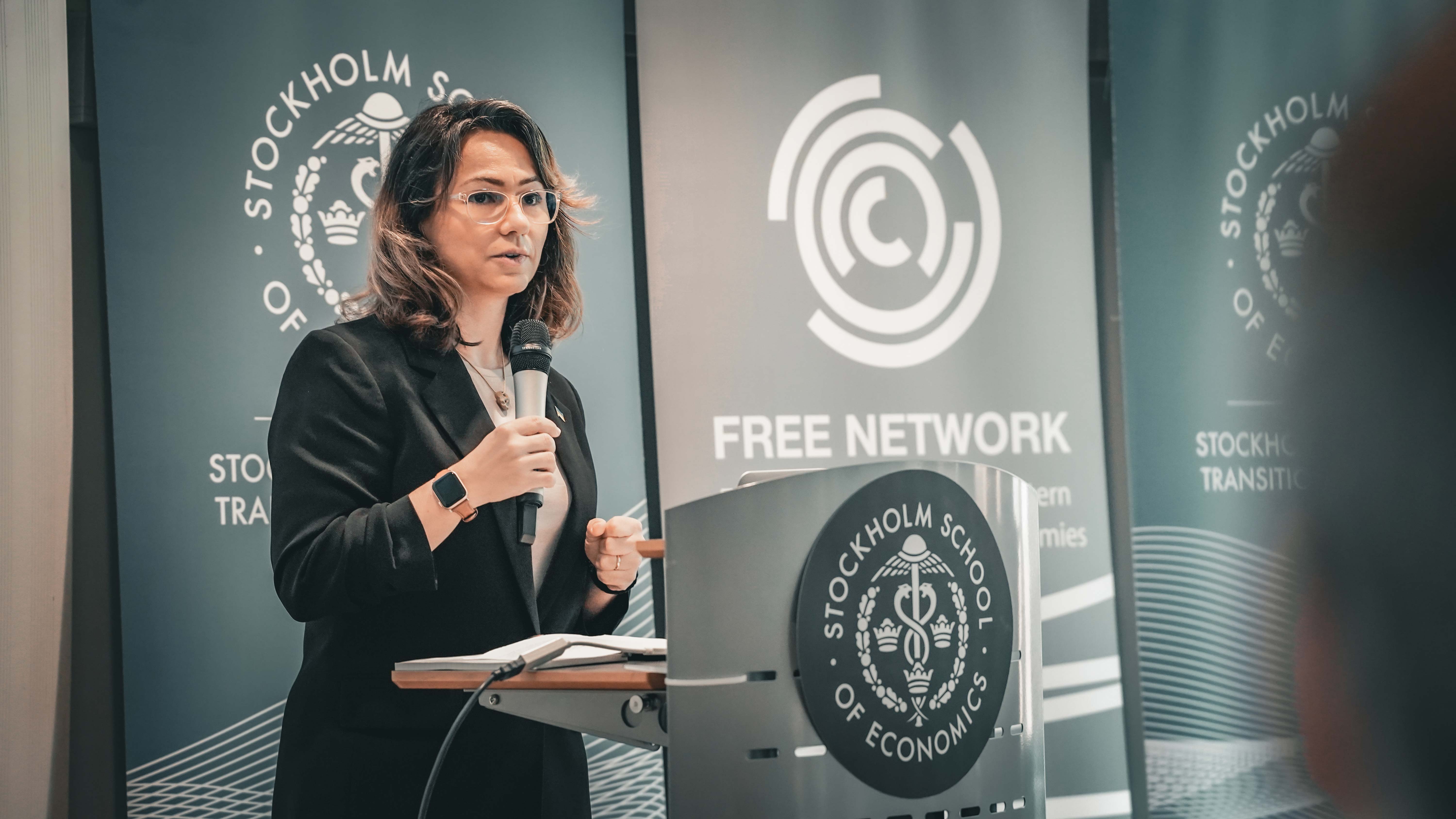
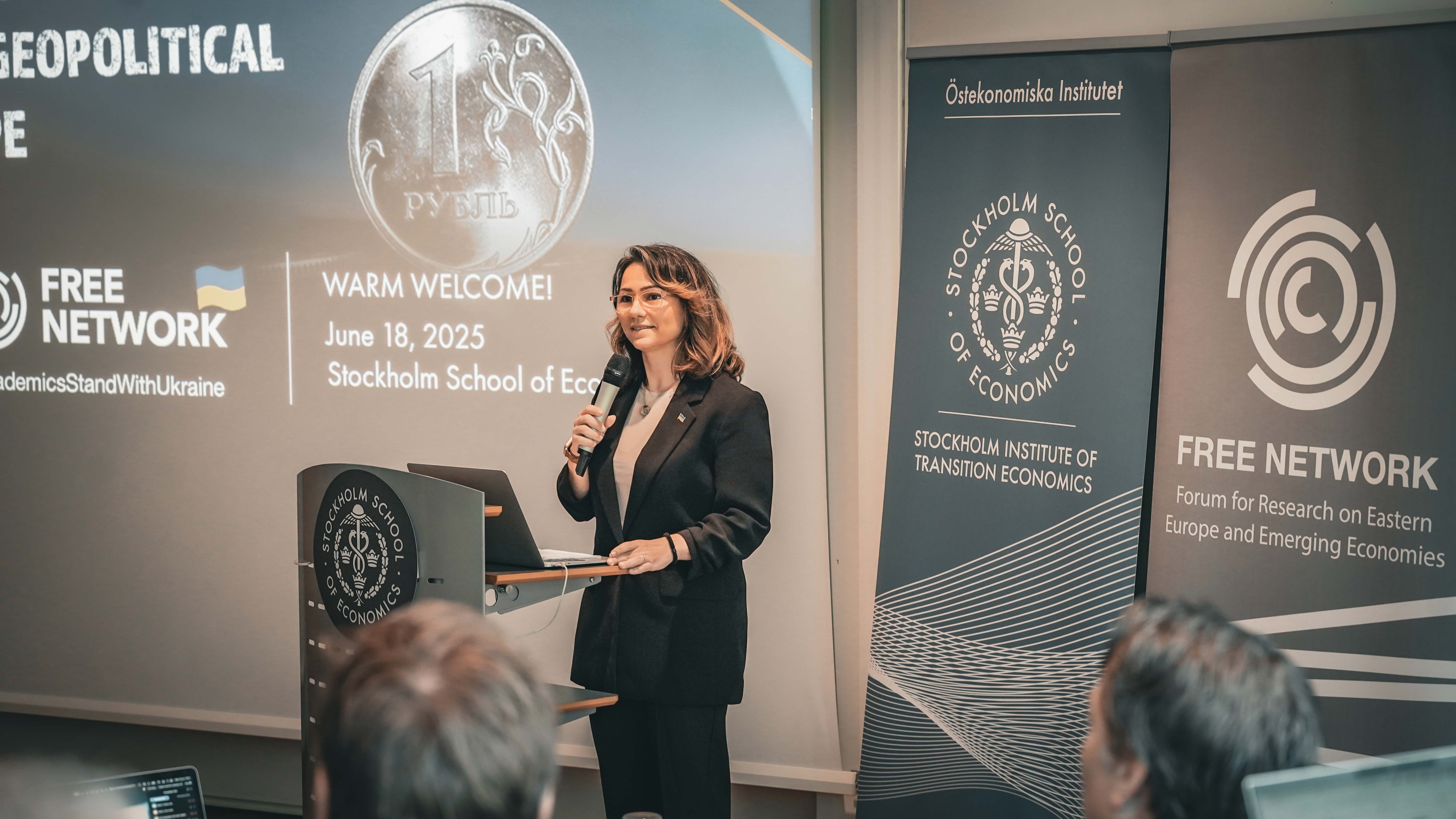
Photos of Maria Perrotta Berlin, Assistant Professor, SITE. Photo: Dominick Nilsson
Anna Ekstedt, part of the newly appointed Sanctions Coordinator at the Swedish Ministry for Foreign Affairs (MFA), followed with strong support for the initiative. She underscored Sweden’s commitment to tightening sanctions—especially in the energy sector and against Russia’s “shadow fleet”—and praised the Sanctions Portal as a vital tool for enforcement, transparency, and outreach.
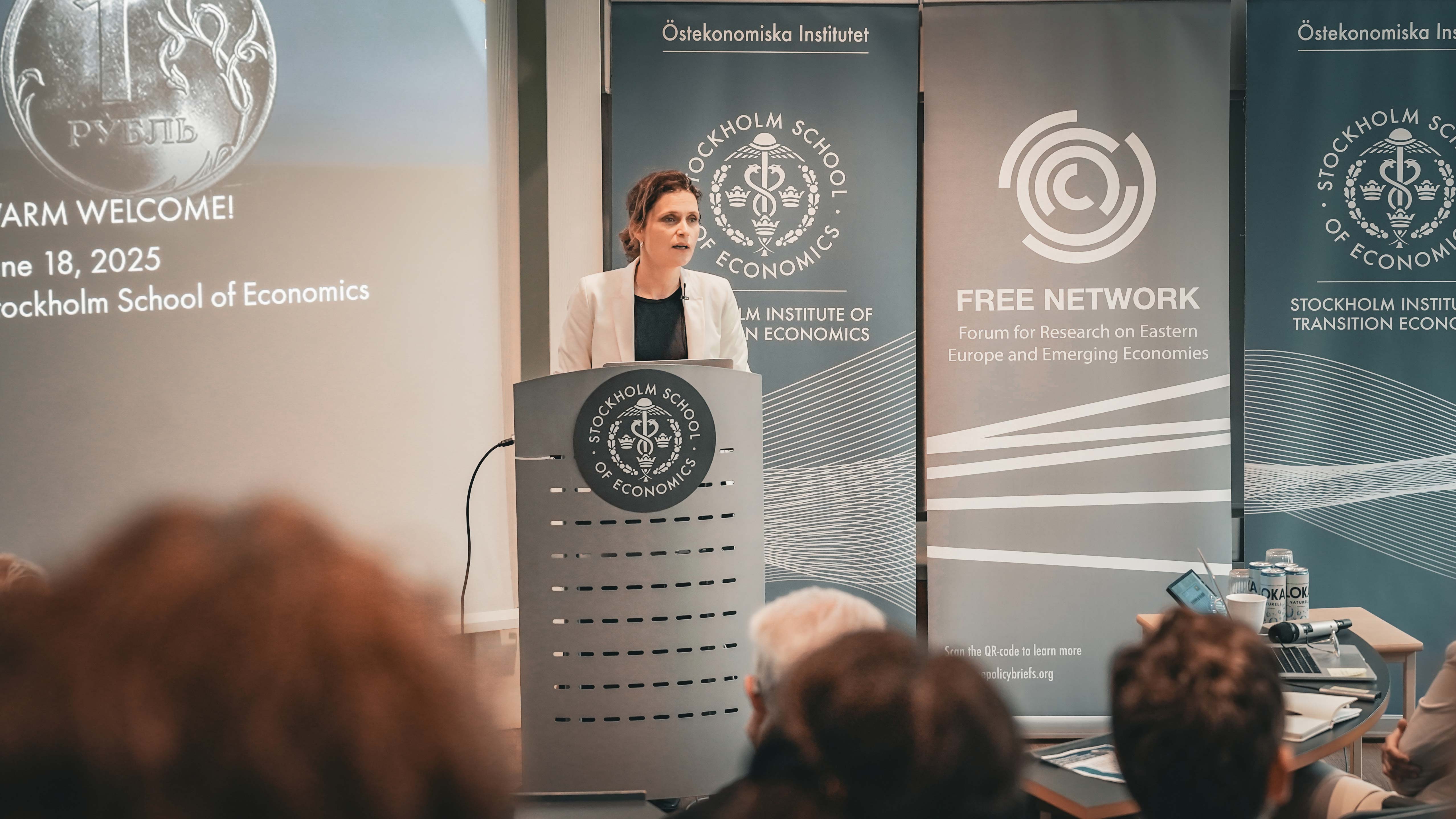
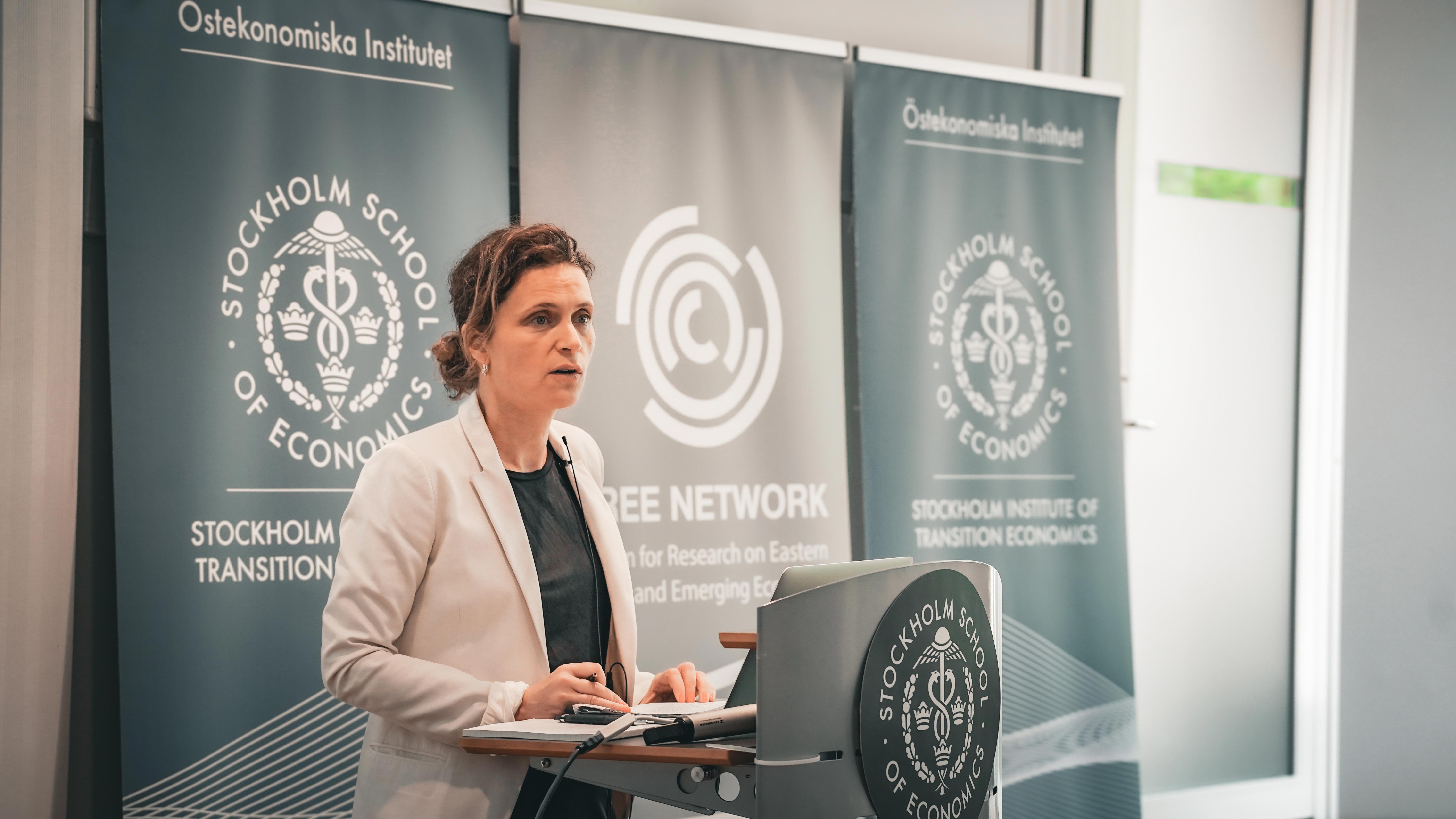
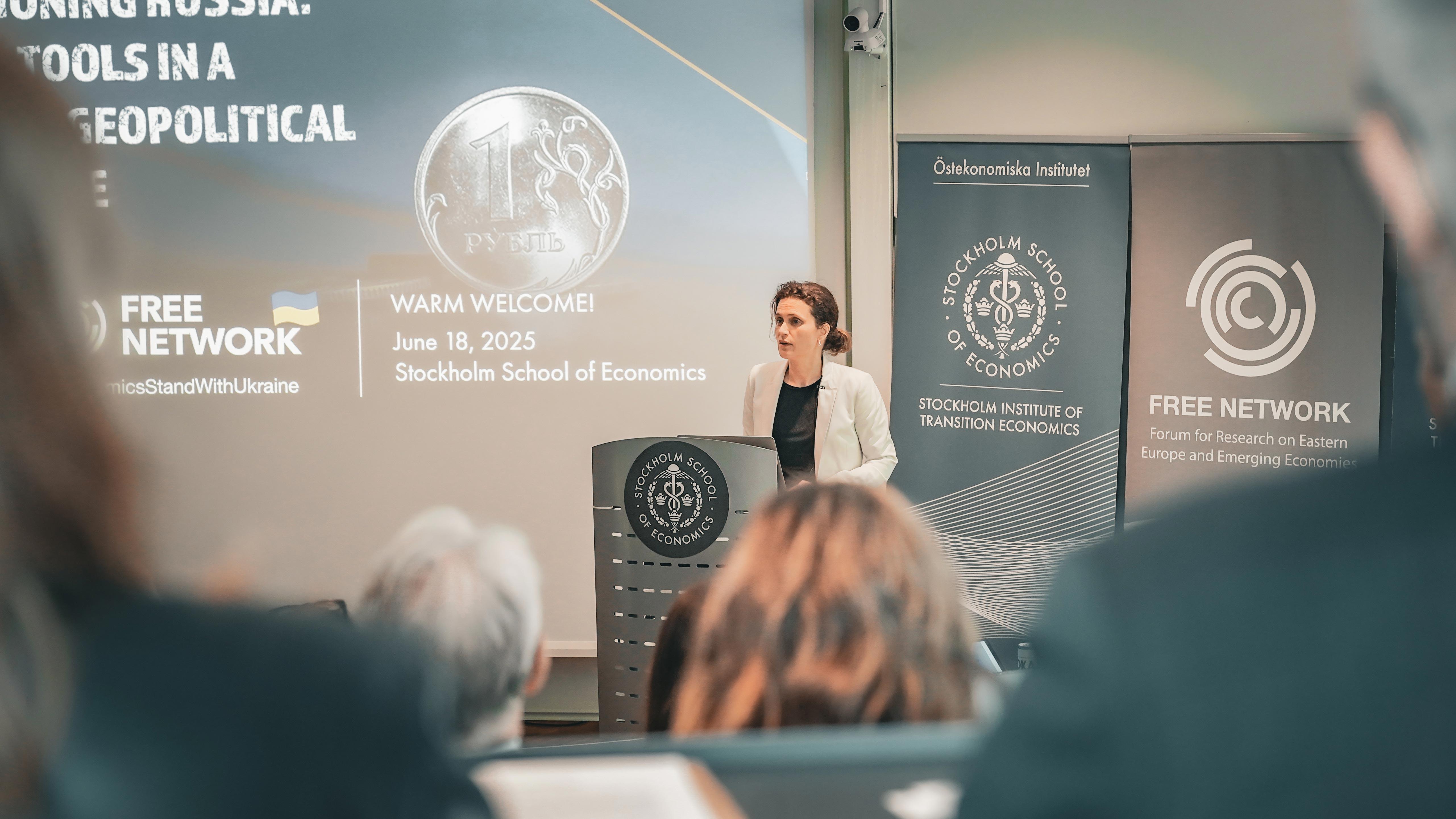
Photos of Anna Ekstedt, Sanctions Coordinator, MFA Security Policy Department. Photo: Dominick Nilsson
Keynote Presentations
- FINANCING THE RUSSIAN WAR ECONOMY (access slides)
Torbjörn Becker (Director, SITE) provided a macroeconomic overview of Russia’s fiscal situation and war financing. Drawing on SITE’s recent government-commissioned report, he highlighted that:
- Russia remains highly dependent on oil and gas revenues.
- Fiscal and monetary policies are out of sync; inflation and policy rates suggest official data are unreliable.
- The National Wealth Fund’s liquid reserves are nearly depleted.
- Sanctions must continue to target core revenue sources and deepen financial sector pressure to disrupt military financing.
- Western frozen assets should be mobilized to fund Ukrainian defense and recovery, turning Russia’s "war chest" into Ukraine’s "peace fund."
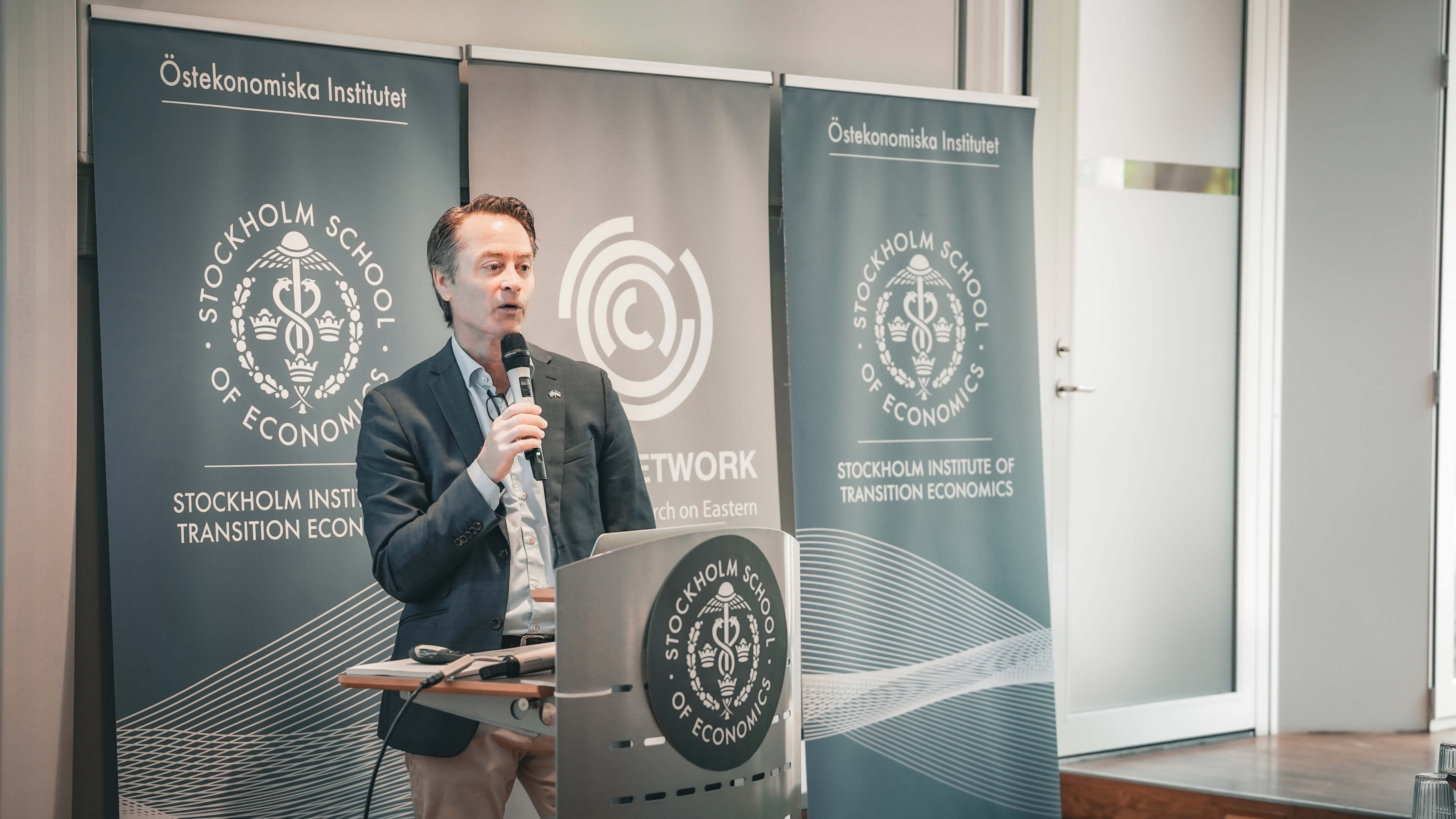
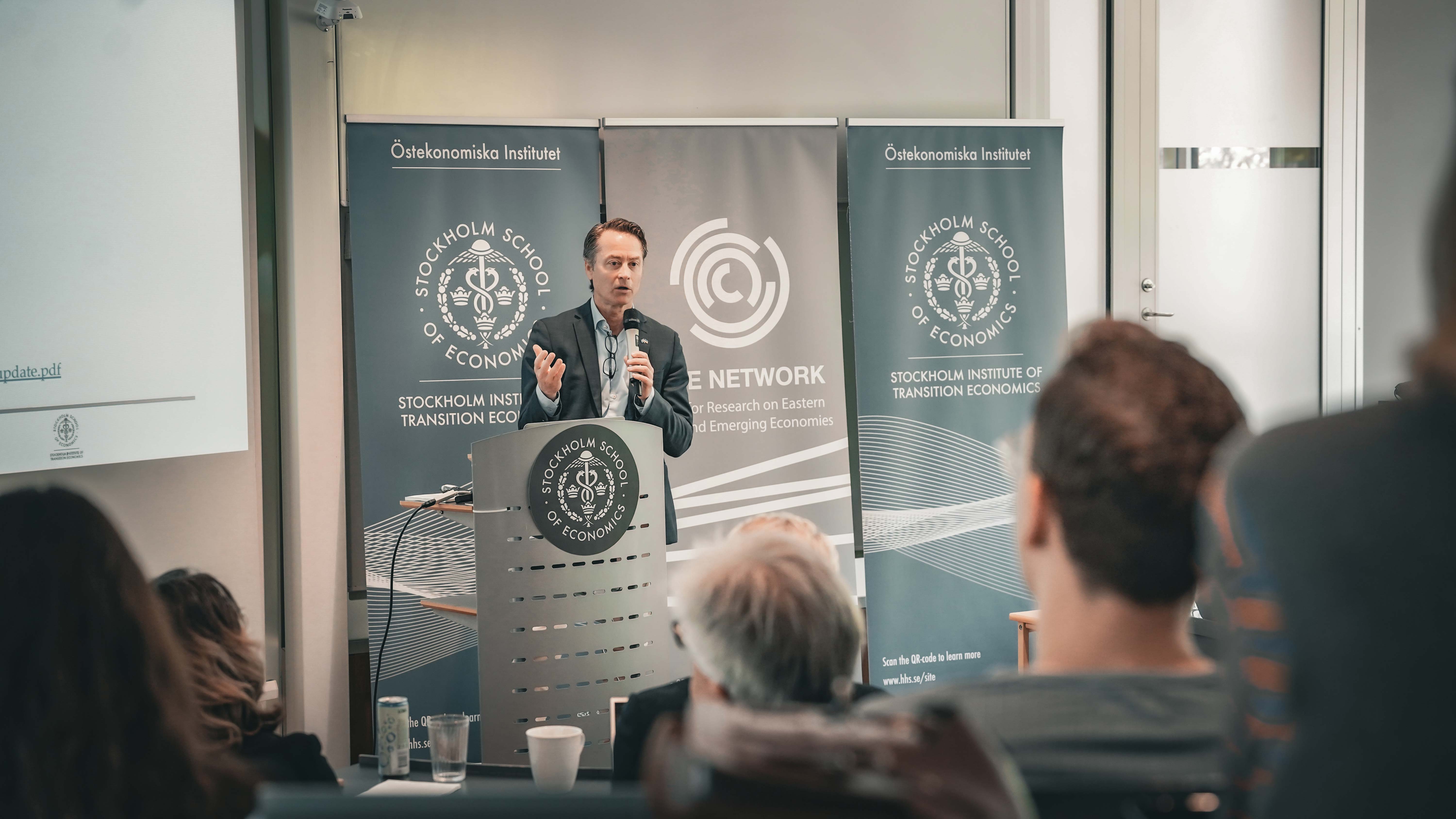
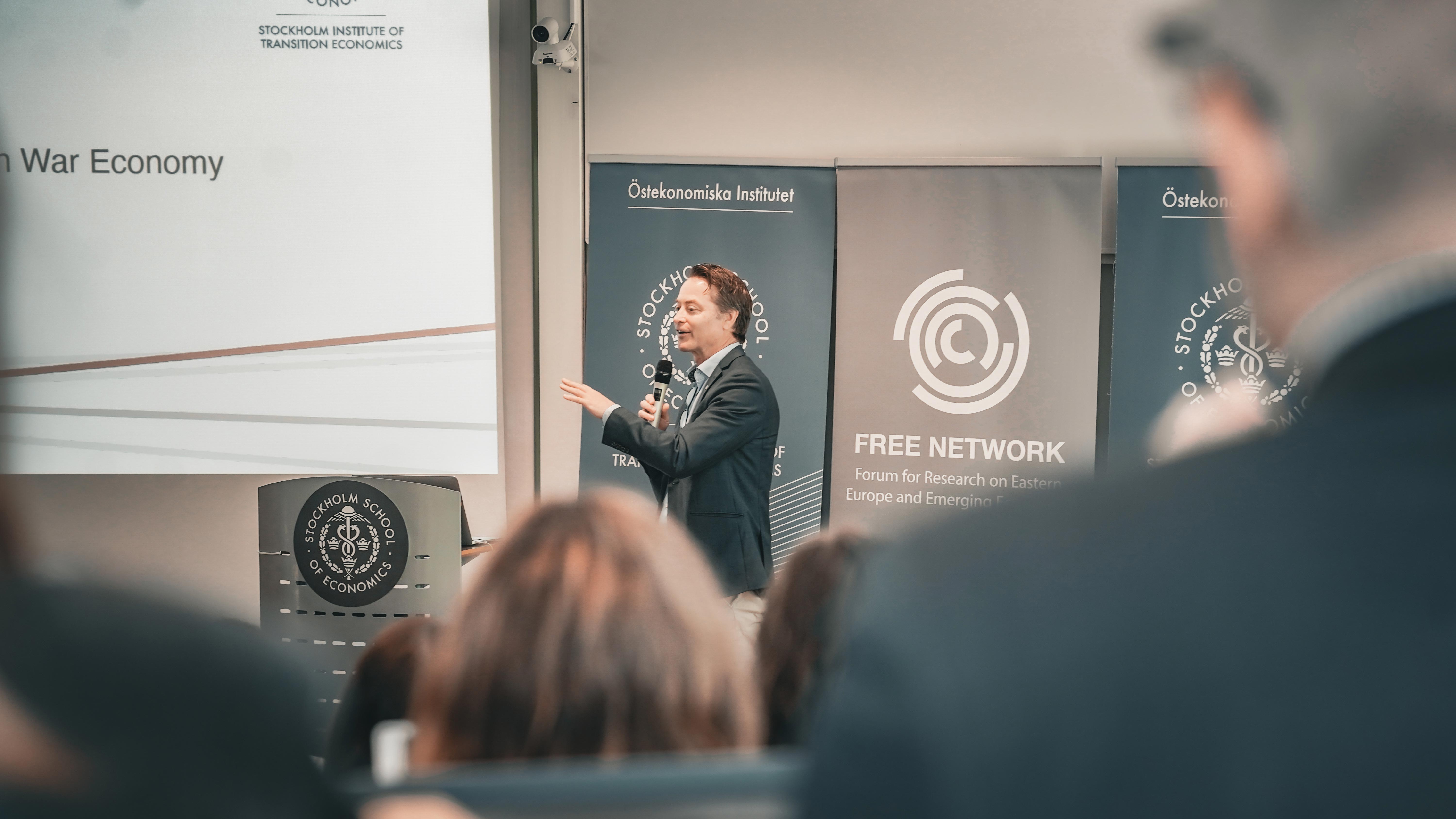
Photos of Torbjörn Becker, Director, SITE. Photo: Dominick Nilsson
- NEXT STEPS IN SANCTIONS STRATEGY: SUSTAINING PRESSURE AND EUROPEAN LEADERSHIP (access slides)
Benjamin Hilgenstock (KSE Institute) argued that current sanctions have curbed some revenues but fall short overall:
- Russia still earned $235 billion from oil and gas exports in 2024.
- Price cap mechanisms lack proper enforcement and transparency.
- Shadow fleet designations, while numerous, lack bite without secondary sanctions.
- He urged contingency planning for scenarios where U.S. support weakens, including building EU enforcement capacity and maintaining cohesion.
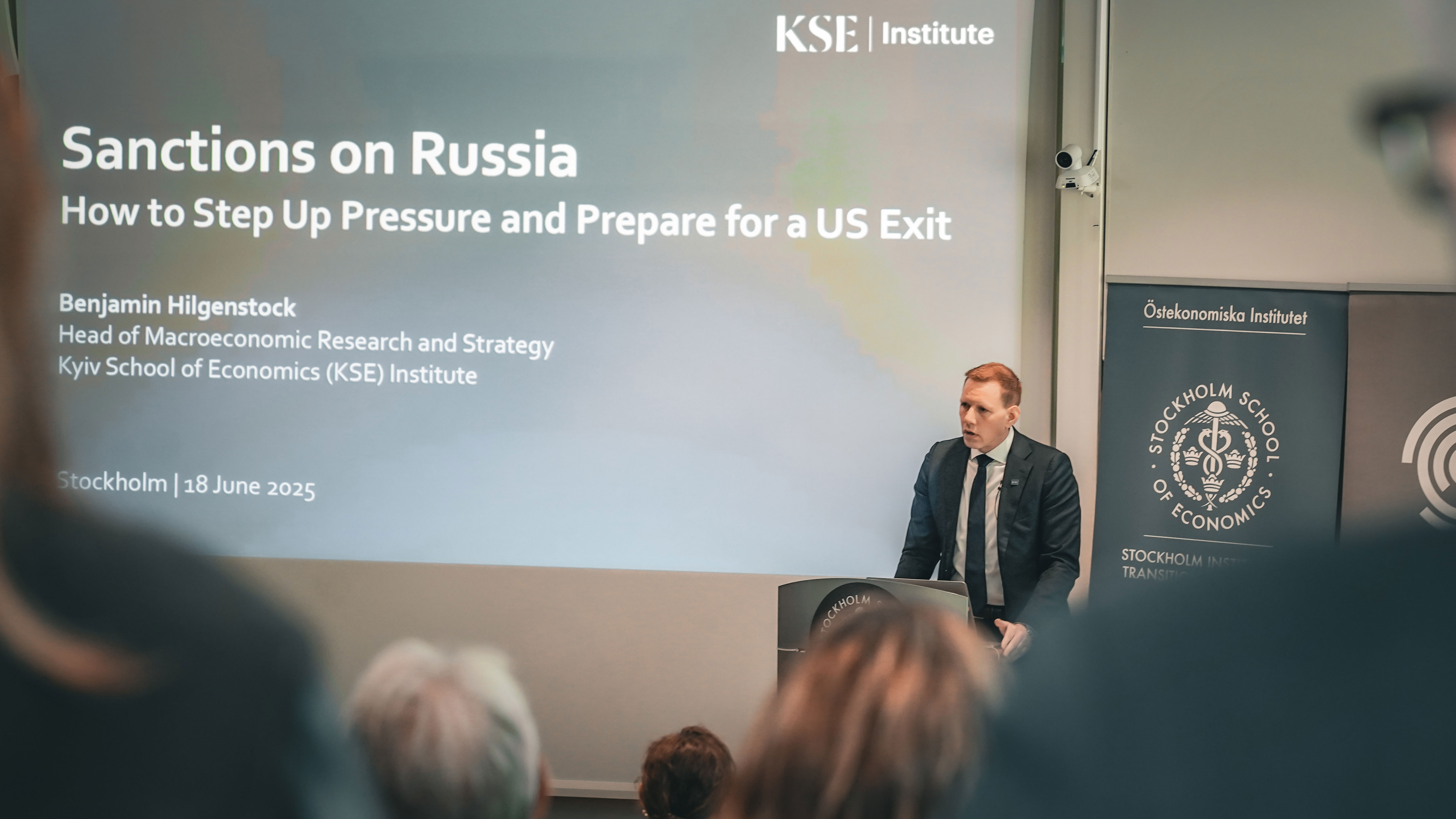
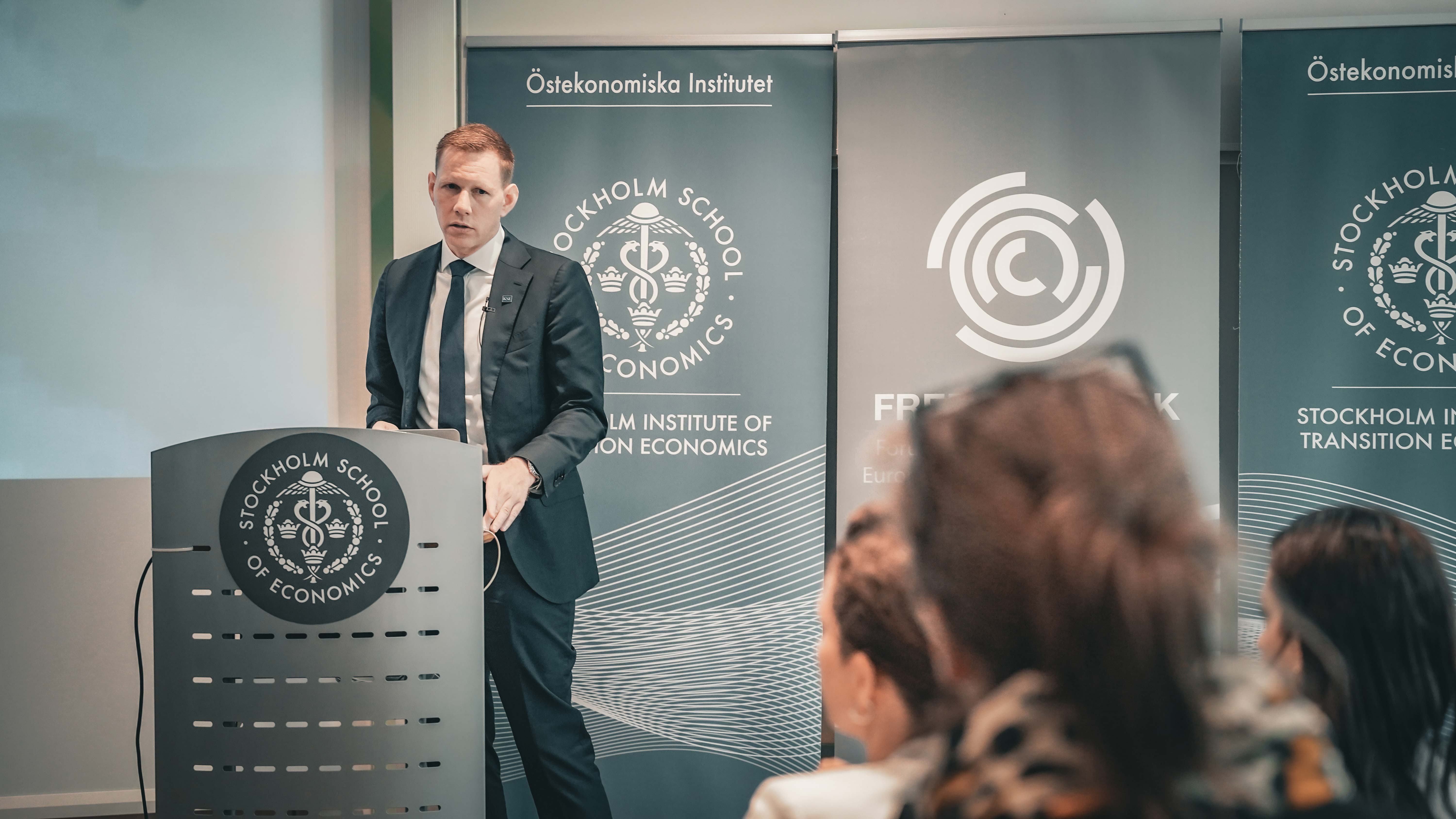
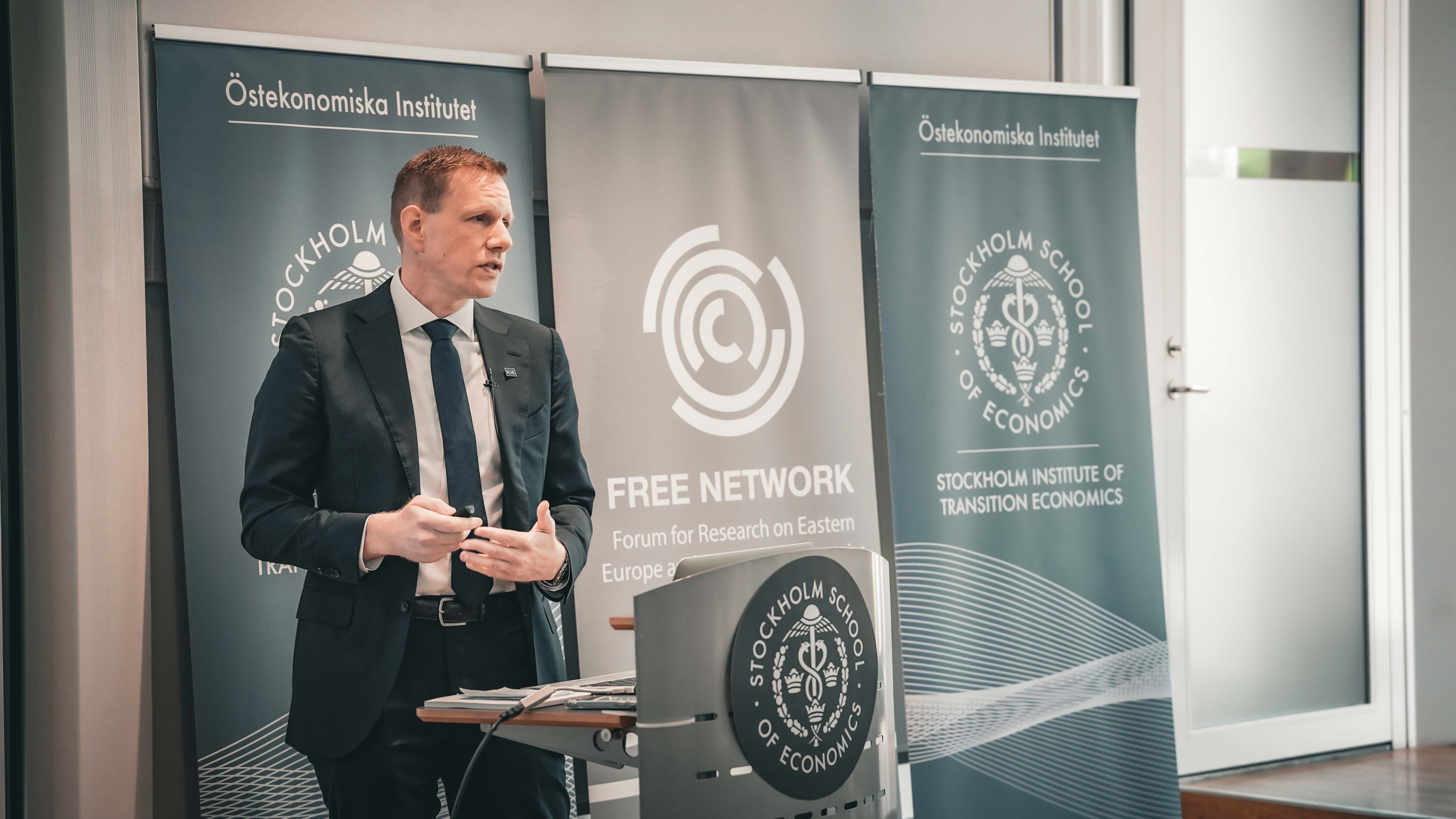
Photos of Benjamin Hilgenstock, Head of Macroeconomic Research and Strategy, KSE Institute. Photo: Dominick Nilsson
- MEASURING SANCTIONS EVASION (access slides)
Erlend Bjørtvedt (Corisk) presented data-driven insights into how sanctioned goods continue to reach Russia via third countries:
- Circumvention routes have shifted from Belarus to Turkey, the Caucasus, and Central Asia.
- Trade “detours” now dominate Western exports raising costs for Russia.
- There is a pressing need to regulate and monitor EU companies operating outside Europe, as they may contribute to evasion indirectly.
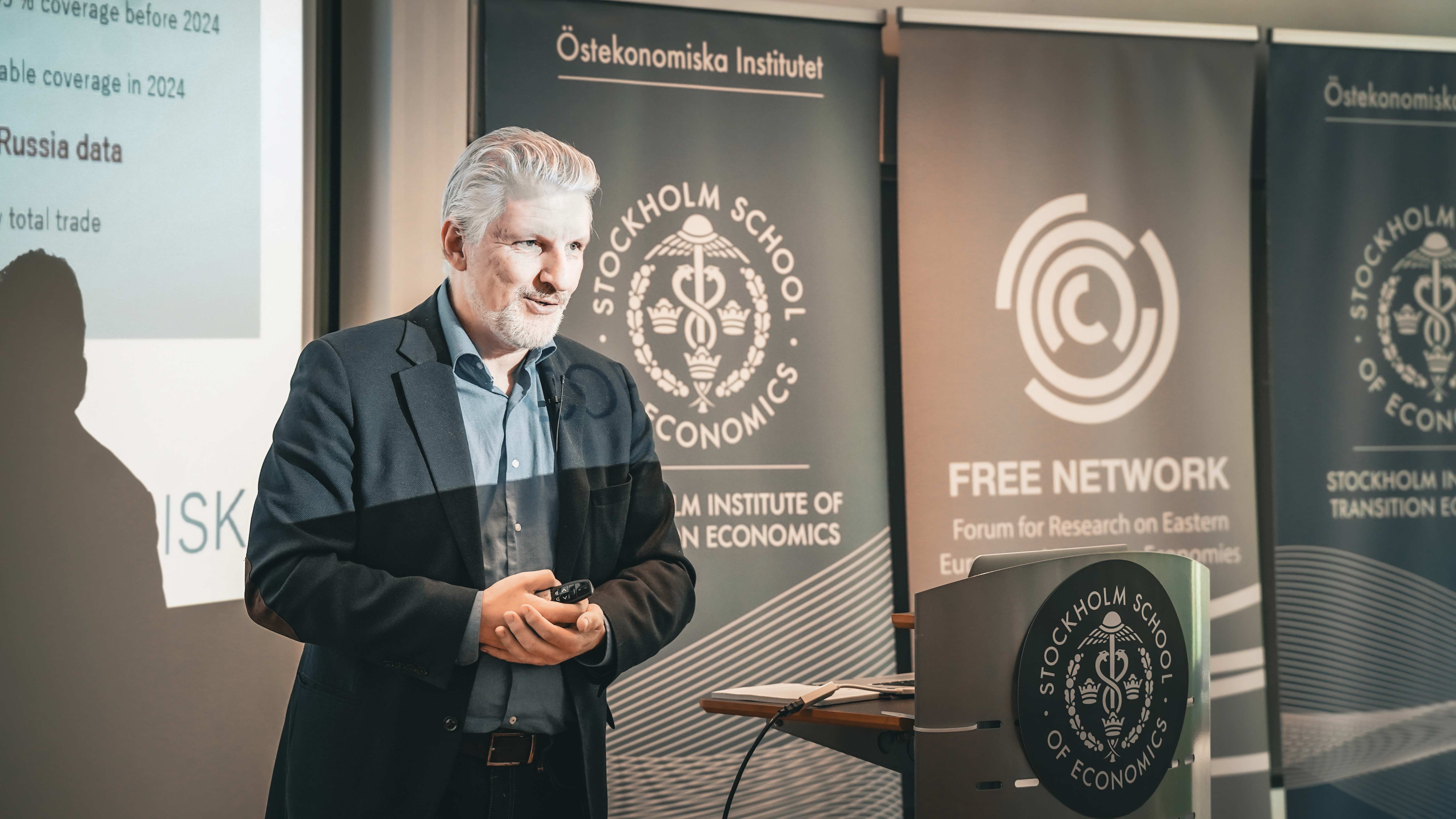
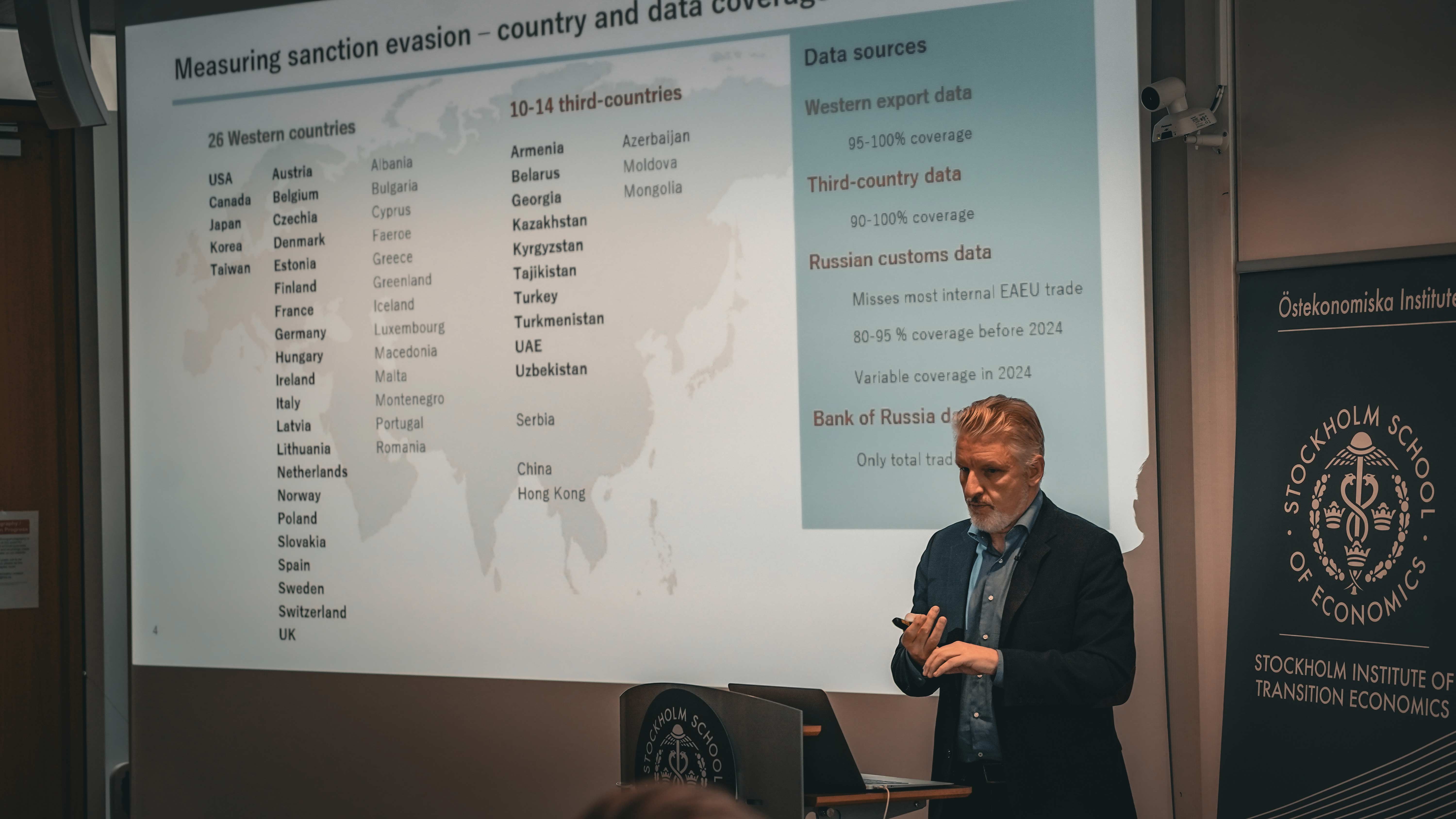
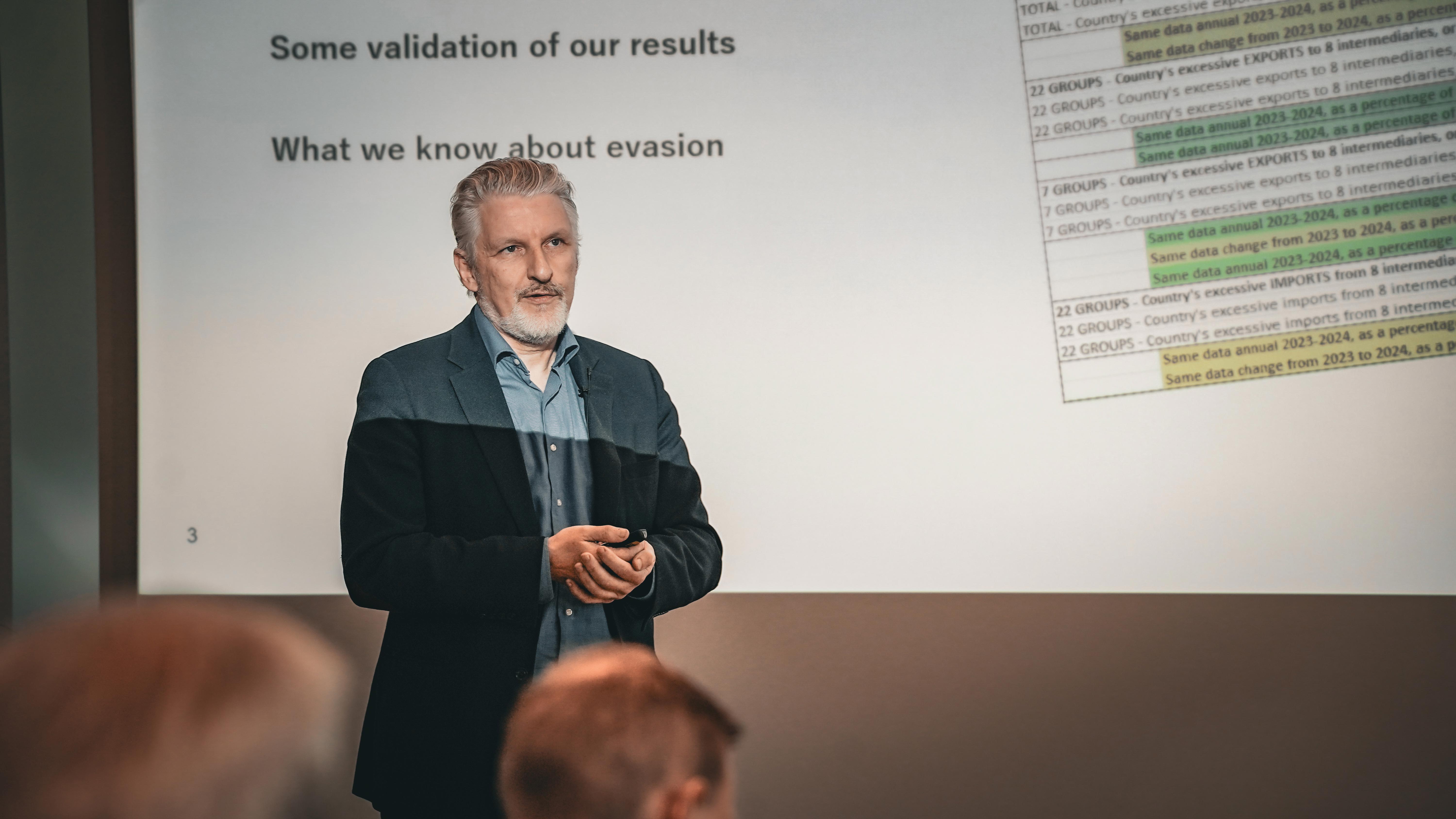
Photos of Erlend Bjørtvedt, Founder, Corisk. Photo: Dominick Nilsson
SanctionsRussia.org: New Web Portal Launch
The event concluded with a live demo of SanctionsRussia.org, introduced by Maria Perrotta Berlin and Erlend Bjørtvedt. Key features include:
- A Timeline of sanctions and Russian countermeasures.
- A searchable Research Library with curated studies and data.
- A forthcoming Sanctions Compliance Index, ranking intermediary and Western countries on enforcement performance, legislative efforts, and corporate compliance.
The portal—developed in collaboration with the Ministry for Foreign Affairs, the Kyiv School of Economics, and Corisk—aims to serve as a unified repository of information, foster accountability, and support sanctions policy with evidence-based tools.
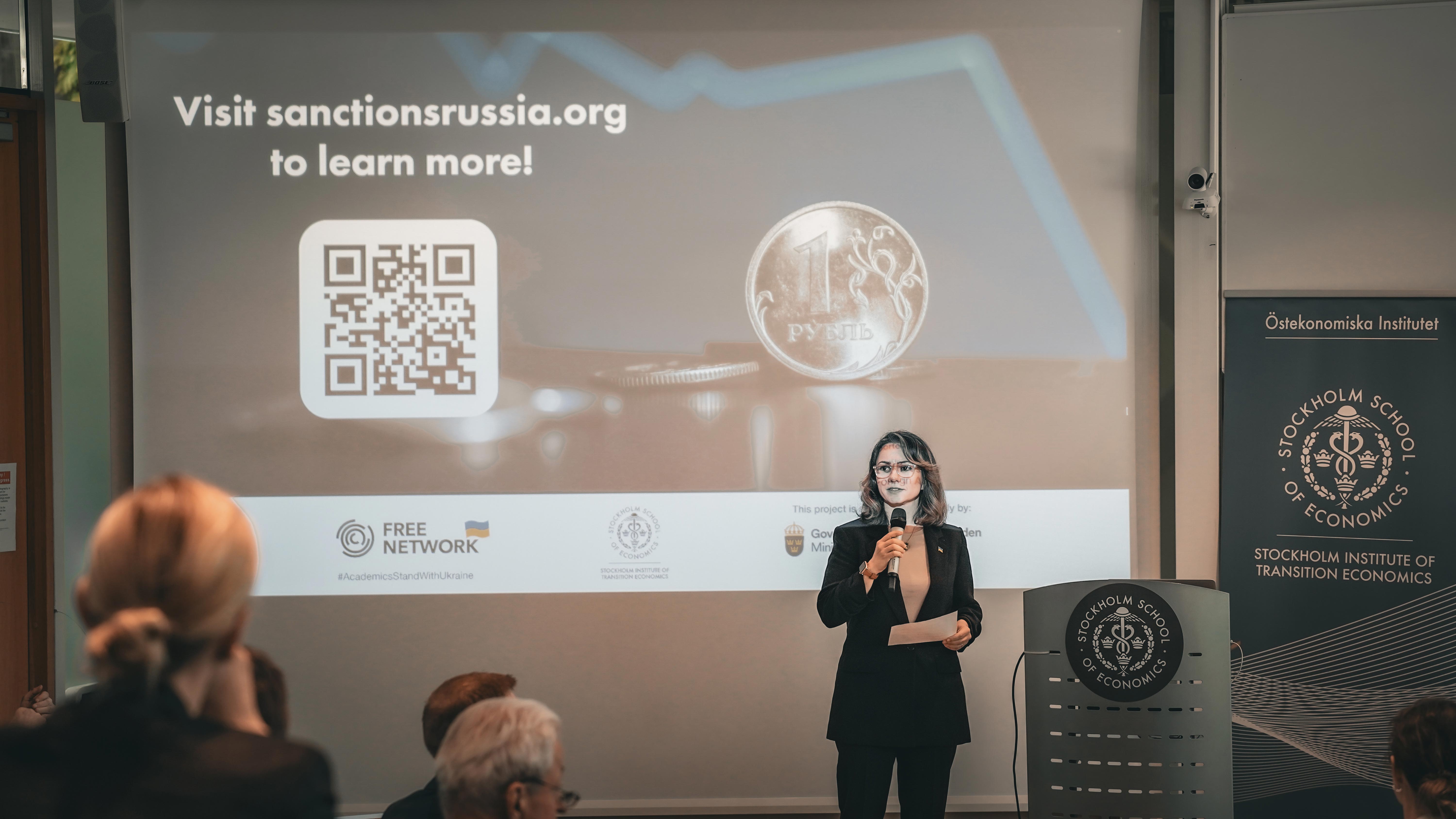
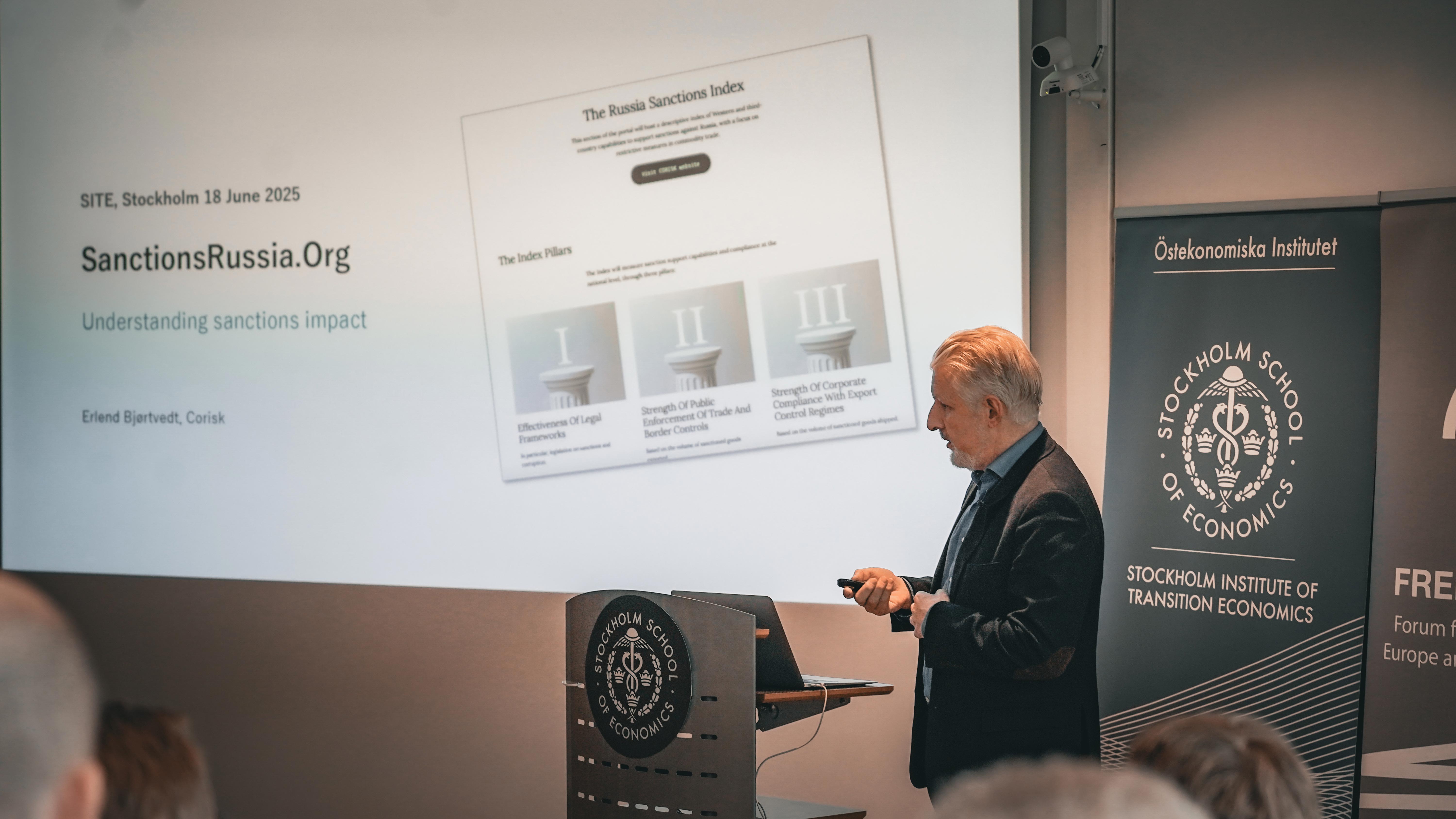
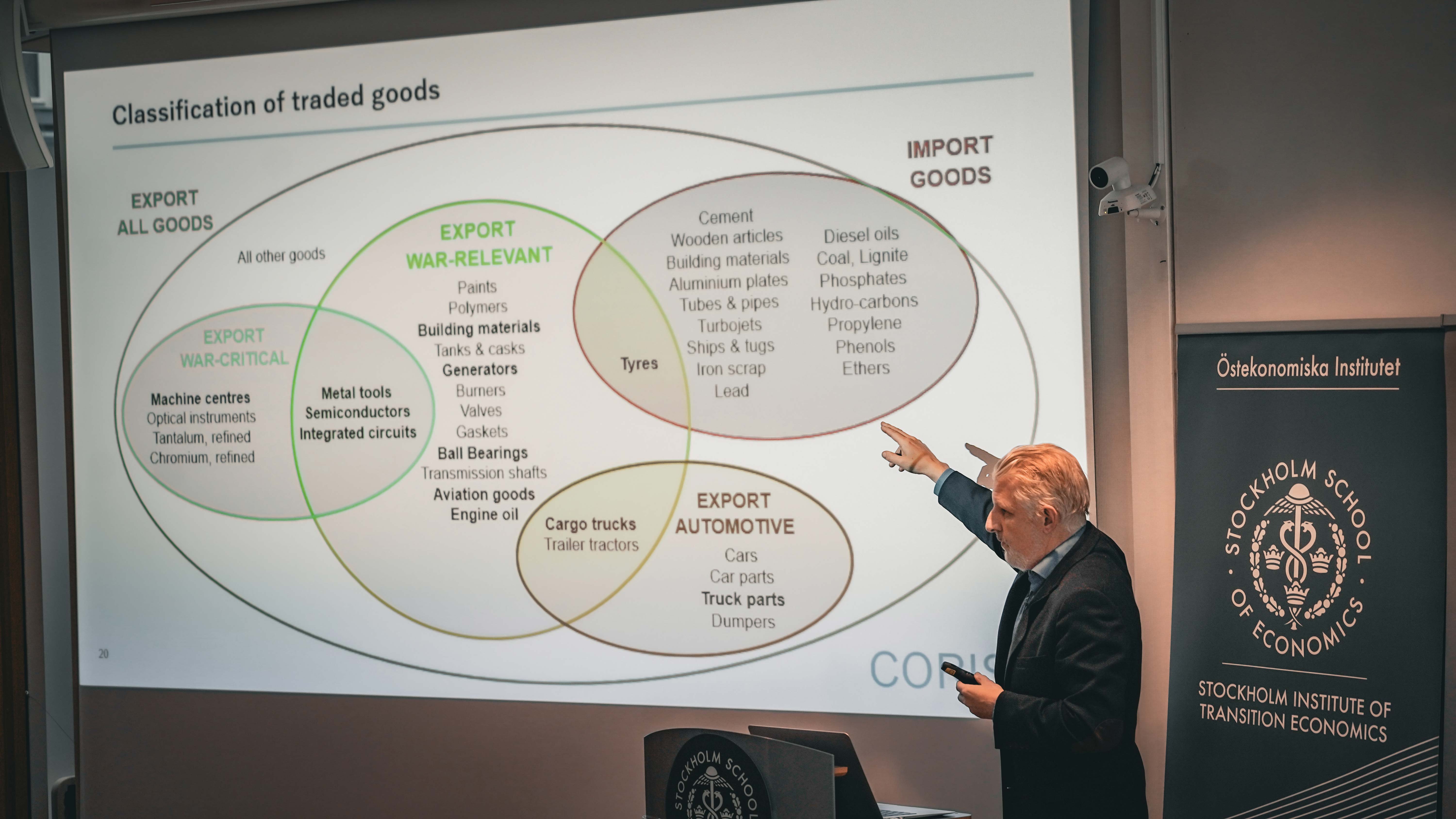
Photos of Maria and Erlend introducing the new Sanction Web portal. Photo: Dominick Nilsson
Conclusion
The seminar underscored the urgent need for smart sanctions design, robust enforcement, and political resolve. As Russia adapts to evade sanctions, the international community must respond with agility and transparency. Through collaborative research and tools like the Sanctions Portal, SITE and its partners aim to support these efforts and inform effective policymaking.
Our heartfelt thanks go to the guest speakers and all attendees—both in person and online—for their valued participation in this important and timely event.
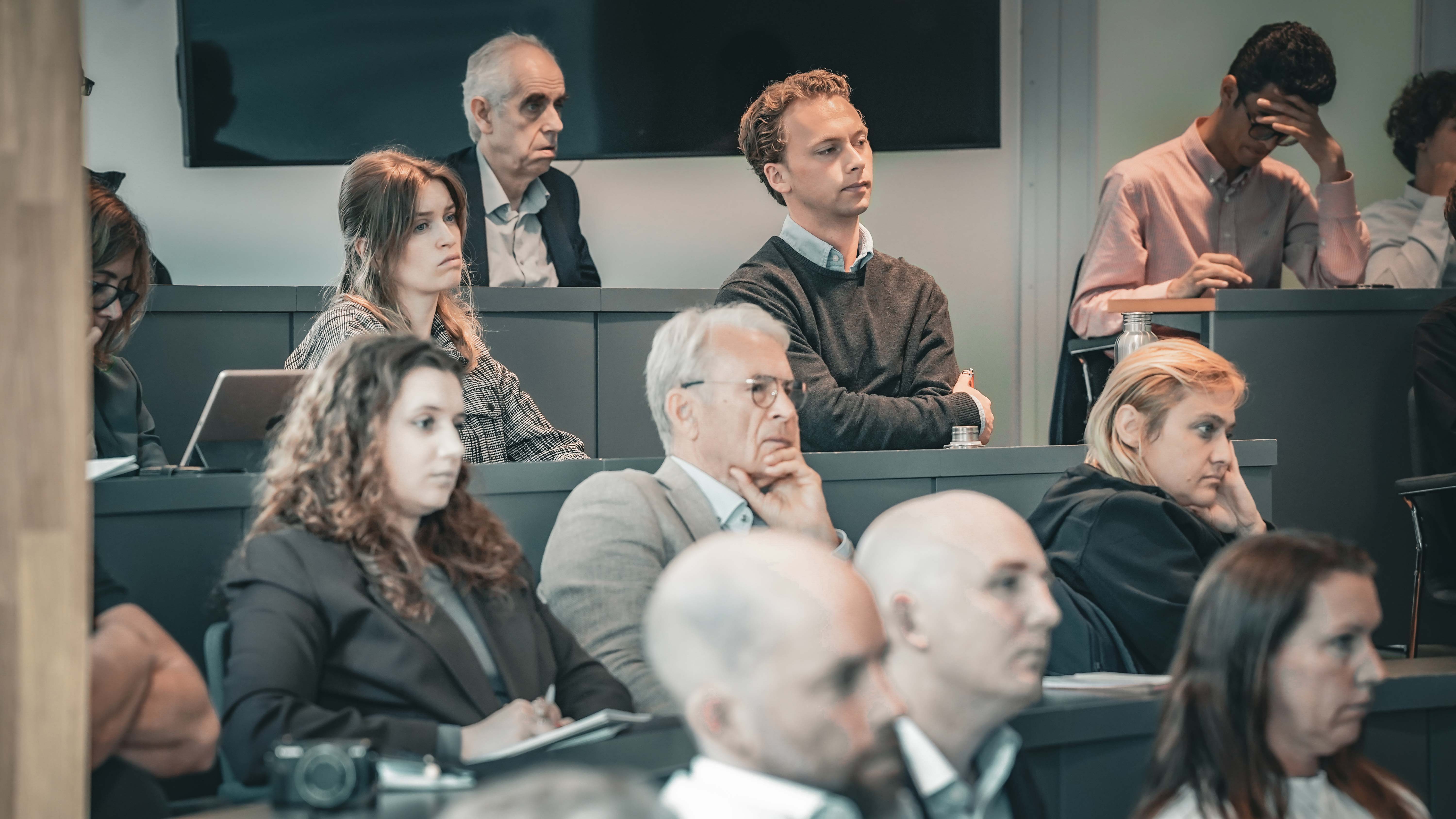
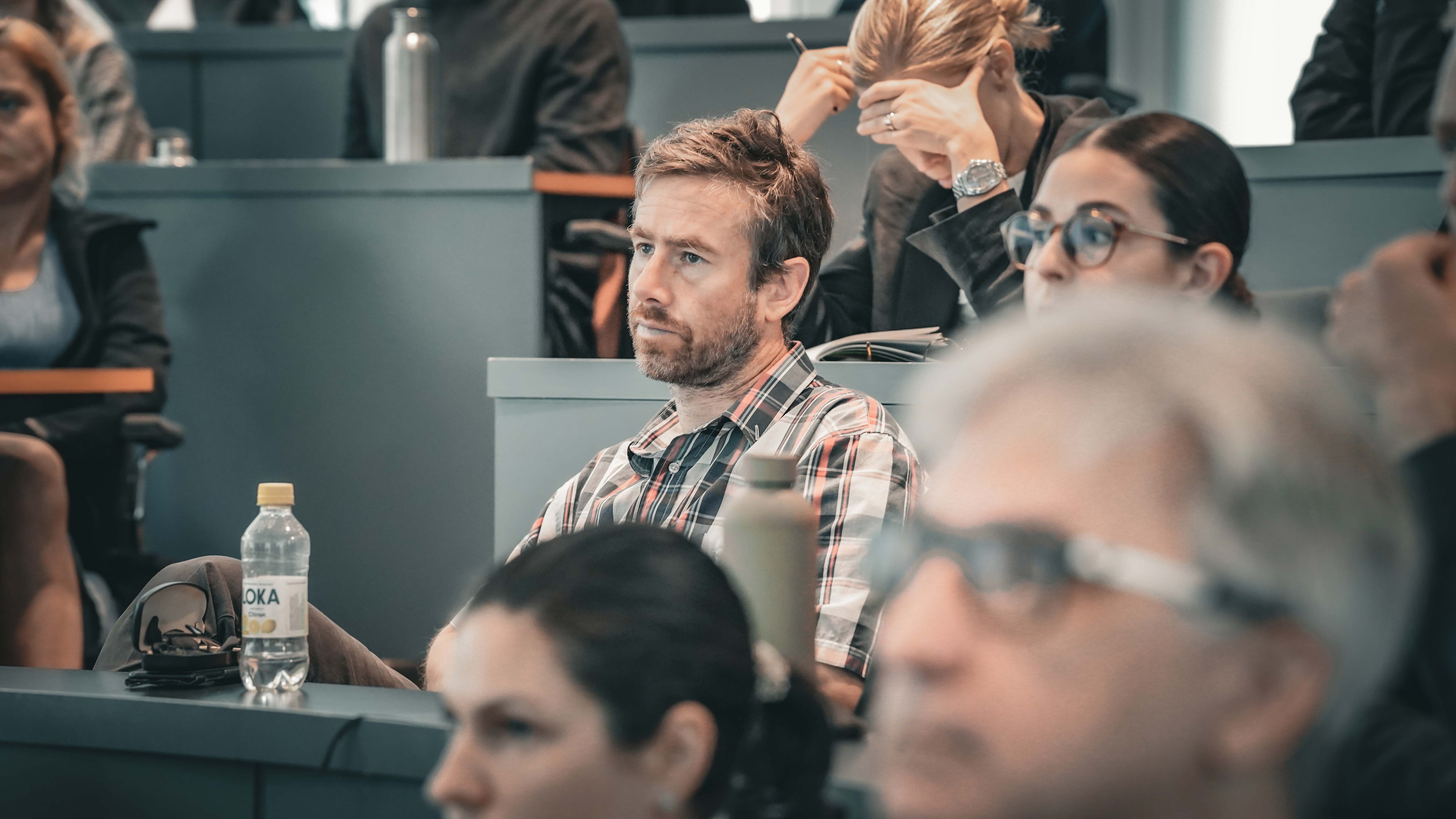
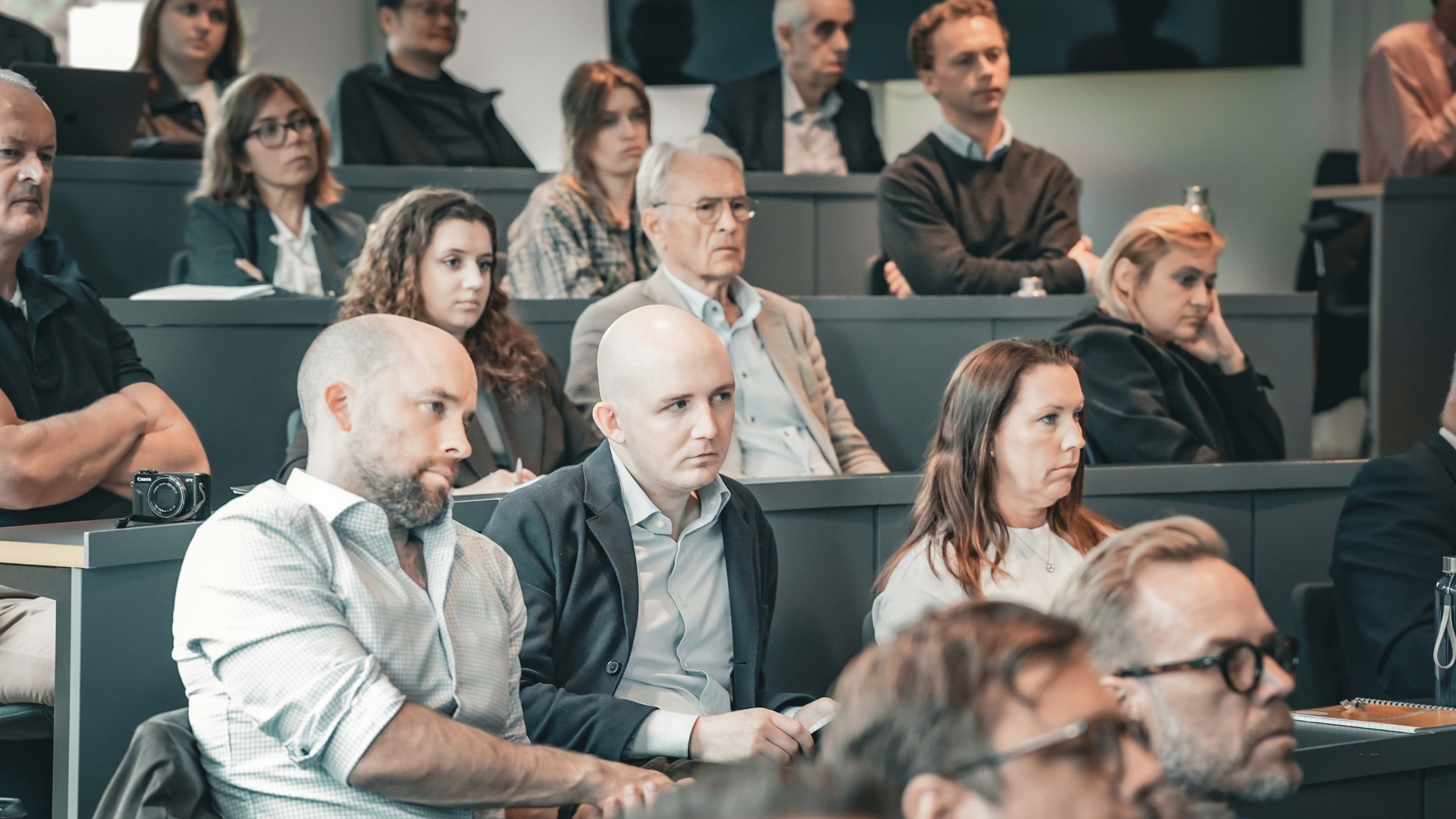

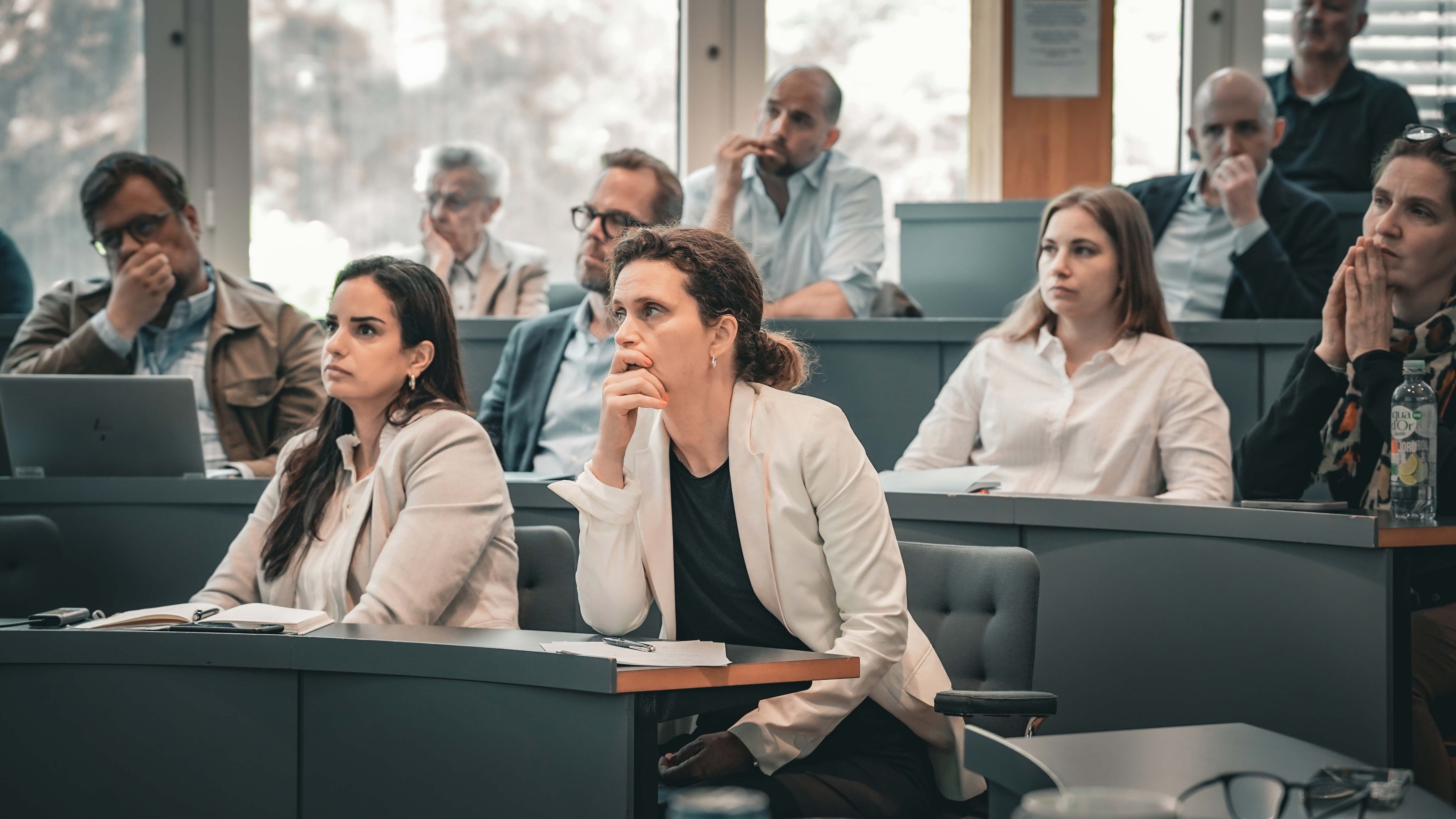
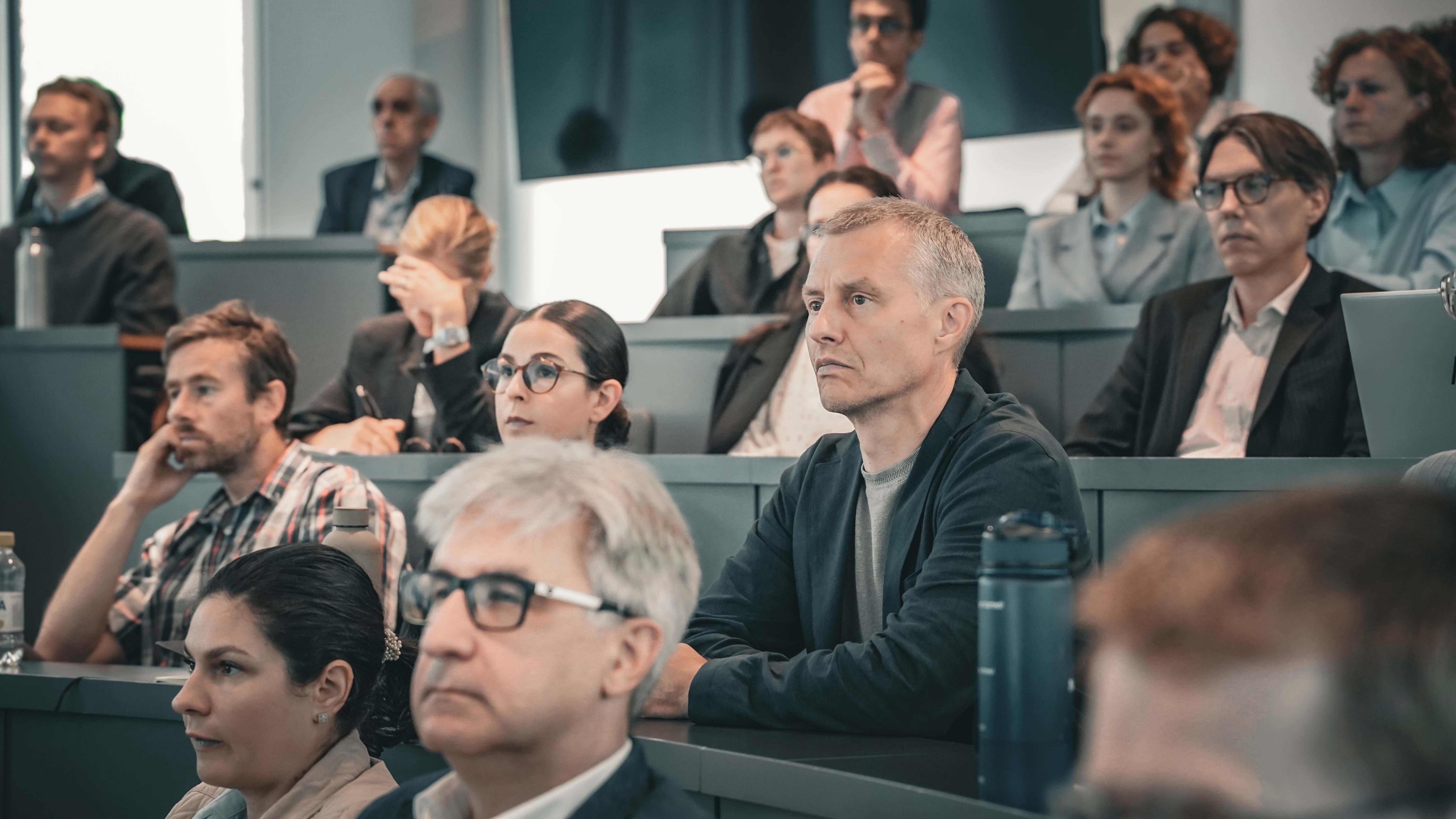
Photos of the audience during the seminar 'Sanctioning Russia: Policy Tools in a Shifting Geopolitical Landscape' on June 18, 2025. Photo: Dominick Nilsson